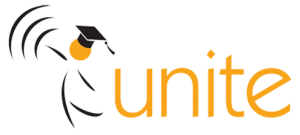Project UNITE

UNITE was a collaborative project partially funded by the European Community under the Information Society Technologies (IST) priority of the 6th Framework Programme for R&D. The overall goal of UNITE was to contribute to the improvement of Europe-wide education in secondary schools based on common, innovative principles in technology, in pedagogy, and in learning scenarios, tested by a well-defined validation framework with the main aim to combine different state-of-the-art technologies in e-learning, in order to provide innovative services in an area at the heart of Europe’s knowledge society: the education of the young Europeans.
In 2006 the situation in eLearning was characterized by proprietary solutions. Platforms, content and underlying pedagogical models were focusing on specific application scenarios. This situation made the reuse of content material, the exchange of best practices, and the improvement of pedagogic models very difficult. Moreover, profound validation methods as well as a proper socioeconomic analysis of the context of eLearning were often missing. In this situation, UNITE aimed at tackling these problems on a European scale.
The underlying technical basis of UNITE was a state of the art platform from Fraunhofer IGD. This platform combined communication and collaboration features in a portal-like environment, a state of the art eLearning management system, providing an eLearning content repository and a best practice “eKnowledge” base with features for mobile learning. The second underlying concept of UNITE was the development of a pedagogical framework focusing on mobile learning, exploratory learning and group learning.
On top of the basic platform and the pedagogy, innovative eLearning scenarios were designed and developed. These scenarios covered learning in distributed environments (in school, in computer labs and in nature), the communication and collaboration between learners and teachers as well as the building and usage of best practices, and the authoring and reuse of content in a Europe-wide knowledge base and repository. The UNITE system was then used in a Europe-wide field test: 14 secondary schools in 10 countries executed variants of the different eLearning scenarios and test especially the country-specific aspects of the UNITE approach. The UNITE project with its innovative concepts and wide field test needed a very careful validation. Therefore, the development of a validation methodology for the quality management of the whole eLearning production chain and the execution of the different tests as well as the integration of the results was an essential work package in UNITE. In parallel and in close collaboration with the validation, an intensive socioeconomic evaluation was undertaken.
Using mobile technology to enhance the learning experience and to break down the school walls paved the way for a major shift of the traditional learning paradigms. In opposition to the rather rigid, culturally “neutral” learning management systems crossing the Atlantic to invade Europe’s learning scene, UNITE’s technology had the flexibility to adapt to the pupil’s cultural environment and to personal learning styles. UNITE demonstrated the need for and the availability of technology capable of supporting the evolution towards the eLearning world of tomorrow whilst taking into account the richness of the past.
The UNITE project was completed on 31st July 2008, but with the agreement of all partners the platform remained open until December 2009. New members were able to join the Network of schools, free of charge for that period.
